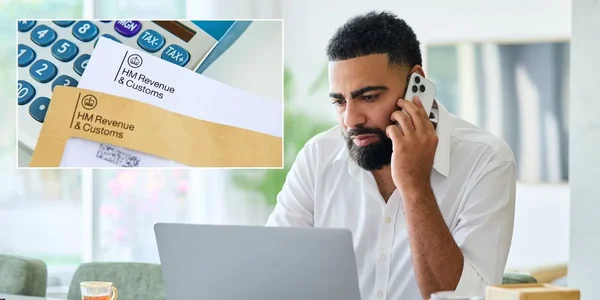Let’s Break This Down Together...
Not sure how your State Pension fits into the tax system or worried you might owe more than you thought? It can feel confusing when pensions, allowances, and other income all get mixed together.
Here, we’ll walk through the basics of how your State Pension is taxed, what happens when you add in private pensions or savings, and which allowances might help reduce your bill. We’ll also touch on the ways HMRC collects tax so there are no surprises.
By the end, you’ll feel more in control of your retirement income and clearer on how to avoid paying more tax than you need to. Let’s get started.
How Is the State Pension Taxed?
Unlike workplace or private pensions, your State Pension is always paid gross. This means without any tax deducted at source.
This doesn’t mean it’s tax-free though. If your total income exceeds your Personal Allowance, you’ll need to pay tax on the amount over this threshold.
For most people, the standard Personal Allowance is £12,570 for the 2024/25 tax year. Any income above this amount becomes taxable. If you receive your state pension as a lump sum, the full lump sum is added to your income for that tax year, which could push you into a higher tax band.
For example, if you receive the full State Pension plus a private pension of £5,000, your total would be £16,502. After deducting your Personal Allowance, you’d pay tax on £3,932.
HMRC typically collects this tax through your other pensions or earnings using the PAYE system. Your tax code will be adjusted accordingly.
When Will I Pay Tax on My State Pension?
You'll only pay tax when your total taxable income exceeds your Personal Allowance. For many, this happens when combining State Pension with other income sources.
Common situations where your State Pension becomes taxable include receiving workplace pensions alongside it. Working part-time during retirement can also trigger tax liability.
Having rental income from property or earning interest from non-ISA savings can push you over the threshold. Remember, it's the combination of all income that matters.
If you have a substantial private pension, you might pay tax at the basic rate (20%). Some retirees even reach the higher rate (40%) on part of their income.
I remember helping my father understand this when he turned 66. He was shocked to discover his modest teacher's pension meant he'd pay tax on his State Pension too.

Tax-Free Allowances for Pensioners
The standard Personal Allowance of £12,570 applies to most pensioners. Age-related allowances were phased out several years ago.
You might benefit from other allowances. The Marriage Allowance lets you transfer £1,260 of your Personal Allowance to your spouse or civil partner.
The Personal Savings Allowance gives basic-rate taxpayers £1,000 tax-free on savings interest. Higher-rate taxpayers receive £500 instead.
The Dividend Allowance provides £500 tax-free on dividend income. This can be useful if you hold shares outside an ISA.
If you were born before 6 April 1935, you might qualify for the Married Couple's Allowance. This could reduce your tax bill by between £364 and £941.50 per year.
How HMRC Collects Tax on Your Pension
Since your State Pension is paid without tax deducted, HMRC needs other ways to collect any tax due. They typically adjust your tax code.
If you have other pensions or are still working, HMRC will use PAYE. Your other pension provider or employer will deduct slightly more tax to cover what's due.
If you don't have other income taxed through PAYE, you might need to complete a Self Assessment tax return. This declares all your income to HMRC annually.
In some straightforward cases, HMRC might send you a Simple Assessment. This shows how much tax you need to pay directly to them.
Tax Planning Tips for State Pensioners
Consider timing your private pension withdrawals carefully. If possible, spread withdrawals across tax years to stay within lower tax bands.
Make the most of tax-efficient savings like ISAs. All interest and growth is completely tax-free and doesn't count towards your taxable income.
If you're married or in a civil partnership, check if the Marriage Allowance could benefit you. This works well if one of you has income below the Personal Allowance.
Gift Aid donations to charity can extend your basic rate tax band. This potentially reduces tax on your pension income if you're a higher-rate taxpayer.

State Pension for Expats
If you retire abroad, your UK State Pension remains taxable in the UK if you're classed as a UK resident. Tax residency rules can be complex.
Many countries have double taxation agreements with the UK. These ensure you don't pay tax twice on the same income.
If you're not a UK resident, you might receive your State Pension without UK tax deducted. Complete form R43 to claim tax relief under the relevant agreement.
Always check the specific rules for your destination country. Tax treatment varies widely around the world, affecting how much of your pension you keep.
Final Thoughts
Understanding how your State Pension is taxed isn't just about avoiding surprises. It can help you plan your retirement finances more effectively.
Keep track of all your income sources and how they interact with tax thresholds. Small changes in how you draw income can sometimes make a big difference.
If your situation is complex, especially with international connections, consider seeking professional advice. The right guidance can save you money and stress.
Simplifying Personal Tax Allowance for Pensioners
We know that tax shouldn’t be a headache during your retirement years when you should be enjoying life. That’s why PIE also offers tailored guidance for pensioners on how different pension withdrawals could affect your tax bill.
We’re building tools with retirees in mind, making complex pension tax rules easier to understand and manage. Curious to see how PIE can support you with pension tax planning? Get in touch with us today.
Quick and Easy Guide to Add Pension Contributions
Follow these steps to add pension contributions in the Pie app
Open the Pie Tax App and find the 'Quick Add' button in the middle of the navigation bar.Click 'Quick Add' in the Navigation Bar

After clicking 'Quick Add', select 'Add tax relief' from the screen to open the options menu.Select 'Add tax relief'













